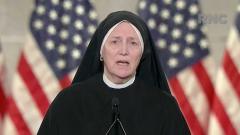1. The Gospel of life is at the heart of Jesus' message. Lovingly received day after day by the Church, it is to be preached with dauntless fidelity as "good news" to the people of every age and culture.
At the dawn of salvation, it is the Birth of a Child which is proclaimed as joyful news: "I bring you good news of a great joy which will come to all the people; for to you is born this day in the city of David a Saviour, who is Christ the Lord" (Lk 2:10-11). The source of this "great joy" is the Birth of the Saviour; but Christmas also reveals the full meaning of every human birth, and the joy which accompanies the Birth of the Messiah is thus seen to be the foundation and fulfilment of joy at every child born into the world (cf. Jn 16:21).
When he presents the heart of his redemptive mission, Jesus says:
"I came that they may have life, and have it abundantly" (Jn 10:10). In truth, he is referring to that "new" and "eternal" life which consists in communion with the Father, to which every person is freely called in the Son by the power of the Sanctifying Spirit. It is precisely in this "life" that all the aspects and stages of human life achieve their full significance.
The incomparable worth of the human person
2. Man is called to a fullness of life which far exceeds the dimensions of his earthly existence, because it consists in sharing the very life of God. The loftiness of this supernatural vocation reveals the greatness and the inestimable value of human life even in its temporal phase. Life in time, in fact, is the fundamental condition, the initial stage and an integral part of the entire unified process of human existence. It is a process which, unexpectedly and undeservedly, is enlightened by the promise and renewed by the gift of divine life, which will reach its full realization in eternity (cf. 1 Jn 3:1-2). At the same time, it is precisely this supernatural calling which highlights the relative character of each individual's earthly life. After all, life on earth is not an "ultimate" but a "penultimate" reality; even so, it remains a sacred reality entrusted to us, to be preserved with a sense of responsibility and brought to perfection in love and in the gift of ourselves to God and to our brothers and sisters.
The Church knows that this Gospel of life, which she has received from her Lord,
1 has a profound and persuasive echo in the heart of every person-believer and non-believer alike-because it marvellously fulfils all the heart's expectations while infinitely surpassing them. Even in the midst of difficulties and uncertainties, every person sincerely open to truth and goodness can, by the light of reason and the hidden action of grace, come to recognize in the natural law written in the heart (cf. Rom 2:14-15) the sacred value of human life from its very beginning until its end, and can affirm the right of every human being to have this primary good respected to the highest degree. Upon the recognition of this right, every human community and the political community itself are founded.
In a special way, believers in Christ must defend and promote this right, aware as they are of the wonderful truth recalled by the Second Vatican Council: "By his incarnation the Son of God has united himself in some fashion with every human being".
2 This saving event reveals to humanity not only the boundless love of God who "so loved the world that he gave his only Son" (Jn 3:16), but also the incomparable value of every human person.
The Church, faithfully contemplating the mystery of the Redemption, acknowledges this value with ever new wonder.
3 She feels called to proclaim to the people of all times this "Gospel", the source of invincible hope and true joy for every period of history.
The Gospel of God's love for man, the Gospel of the dignity of the person and the Gospel of life are a single and indivisible Gospel.
Now you may understand the Gospel more fully, if you can lower your prejudice enough to re-read this post with an open mind.


